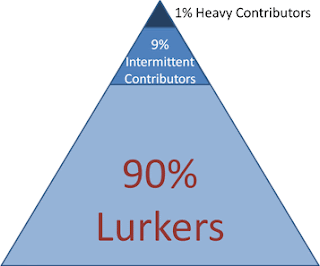EDDE 806 - Post VI - A new semester

And so, this week, another school season kicks off! This week we had both the kick-off for EDDE 805 (dissertation seminar I) and EDDE 806 (dissertation seminar II). I decided that last to start attending EDDE 806 regularly (or as regularly as I can) so that my final class-based semester (next spring) can be focused more on getting my dissertation proposal done. In this first session of EDDE 806 we mostly had a bit of a check-in (which is sort of what we did in 805 as well). There seemed to be some interesting strands that came came out of 806 last night. First, Peggy Lynn (Cohort 6) is working on a project to translate the term OER (Open Eaducational Resources) into a variety of languages for a variety of reasons, but one of them is to make it easier to label, and search for, OERs that are in languages other than English. If you want to help out please check out this page . I did actually try to coin a term in Greek a number of years ago. A few co...







